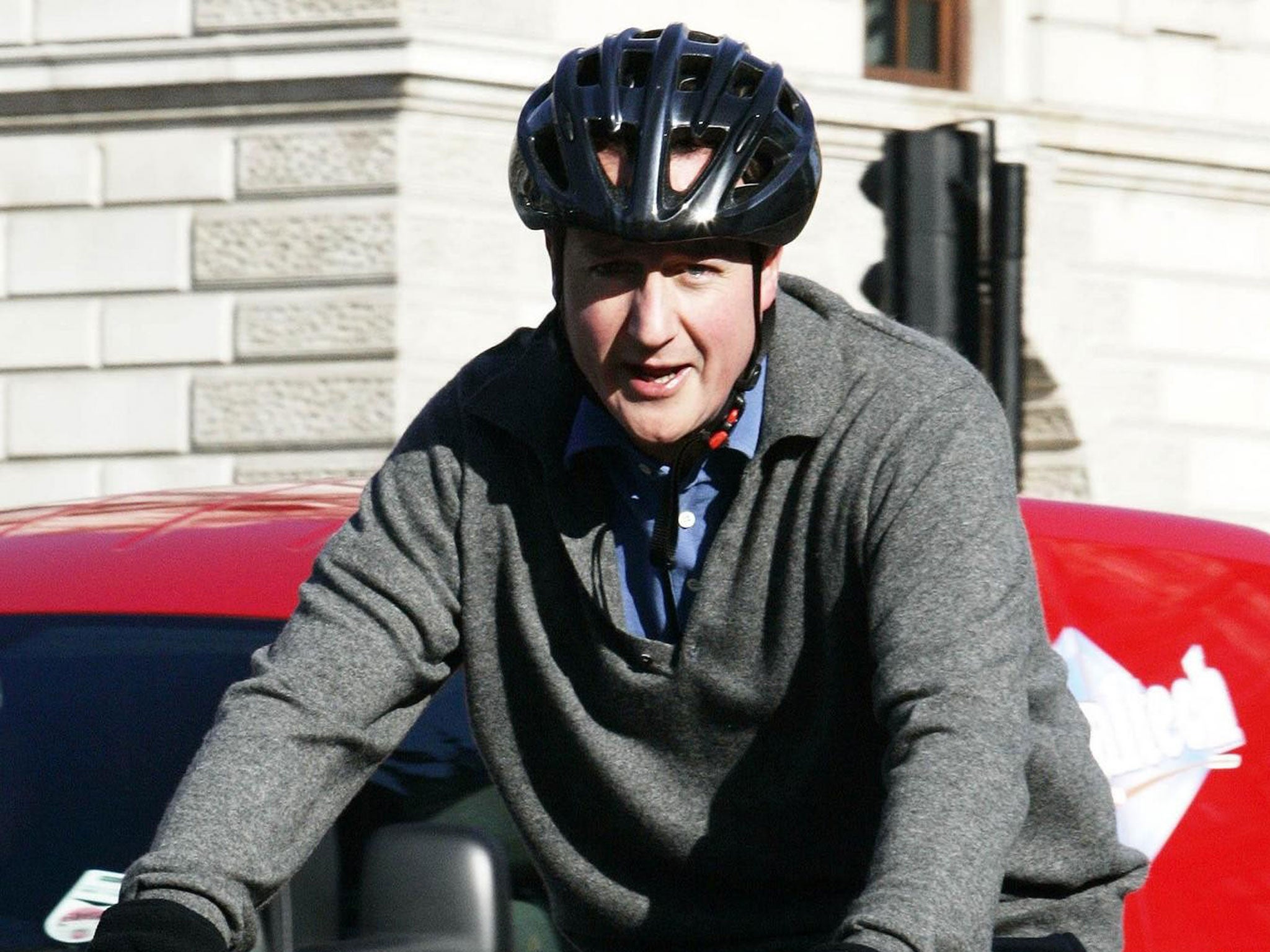Cameron talks the green talk, but... that's all
Joss Garman is still waiting for the PM's new era of environmentalism


Your support helps us to tell the story
From reproductive rights to climate change to Big Tech, The Independent is on the ground when the story is developing. Whether it's investigating the financials of Elon Musk's pro-Trump PAC or producing our latest documentary, 'The A Word', which shines a light on the American women fighting for reproductive rights, we know how important it is to parse out the facts from the messaging.
At such a critical moment in US history, we need reporters on the ground. Your donation allows us to keep sending journalists to speak to both sides of the story.
The Independent is trusted by Americans across the entire political spectrum. And unlike many other quality news outlets, we choose not to lock Americans out of our reporting and analysis with paywalls. We believe quality journalism should be available to everyone, paid for by those who can afford it.
Your support makes all the difference.Five years ago to the week, David Cameron visited the Greenpeace HQ to launch the pre-election Conservative energy policy, declaring he wanted "to make Britain greener to help reduce our carbon emissions and therefore contribute to a safer country and a safer world".
Another time, I sat in an audience of environmental campaigners as he addressed the conventional wisdom head on. "I want to tackle an argument that seems to be as cyclical as the economy. The argument that when times are good, we can indulge ourselves with a bit of environmentalism – but when the economic going gets tough, the green agenda has to be dropped. According to this argument, protecting the environment is a luxury rather than a necessity – and it's a luxury we just can't afford in an economic downturn. I want this generation to be the one that bucks that trend."
More than on any other issue, Cameron's personal brand was built on his association with tackling climate change. He installed a wind turbine on his roof, was photographed cycling to work and made a visit to hug huskies on a melting Arctic glacier. His local election campaigns were conducted under the slogan "vote blue, go green".
He sought to win over his party's sceptics. "The era of cheap oil is well and truly over. So whether we need to cut our carbon or not – which we do. Whether you believe in climate change or not – which you should. For the sake of our future prosperity and our current cost of living, we must wean ourselves off our dependence on fossil fuels and go green."
A year after becoming his party's leader he invited environmentalist George Monbiot to debate world poverty at the Tory conference. He later recruited Zac Goldsmith as a policy adviser, and on the very day he took office cancelled the third runway at Heathrow, pledging to lead the "greenest government ever". Truly, this seemed a different sort of Tory leading a very different party.
But we now have John Hayes as minister in the Department of Energy and Climate Change, who says we've reached "the end of the story" for wind farms. When Lib Dem Secretary of State Ed Davey wrote to the Prime Minister to express deep concern about Hayes's influence, he never received a reply.
A new Office for Shale Gas is to be set up and new Environment Secretary Owen Paterson, major proponent of fracking and Hayes's fellow campaigner against wind energy, is to be in charge of regulating the shale gas industry. Climate sceptic and oil company boss Peter Lilley has been elected by his Tory colleagues to the committee that scrutinises climate change policy, and airport expansion is back on the agenda. George Osborne's father-in-law, Lord Howell, was secretly recorded telling an undercover Greenpeace activist that the Chancellor is manoeuvring people into key positions to get the UK out of legal climate change commitments.
Most significantly, Osborne's new "gas strategy", aimed at increasing our reliance on fossil fuels to generate electricity, would be certain to crash the carbon targets that David Cameron aggressively championed in opposition.
So where is David Cameron on these issues that he once staked his reputation and integrity upon? Was he just cynically using those huskies for electoral saliency, or is he simply too weak to stand up to his party's anti-environment faction?
The delegation of turquoise Tory MPs who backed Cameron's modernisation project wanted an answer to just those questions when they visited Downing Street last week.
Joss Garman is political director of Greenpeace UK: twitter.com/@jossgarman
Join our commenting forum
Join thought-provoking conversations, follow other Independent readers and see their replies
Comments